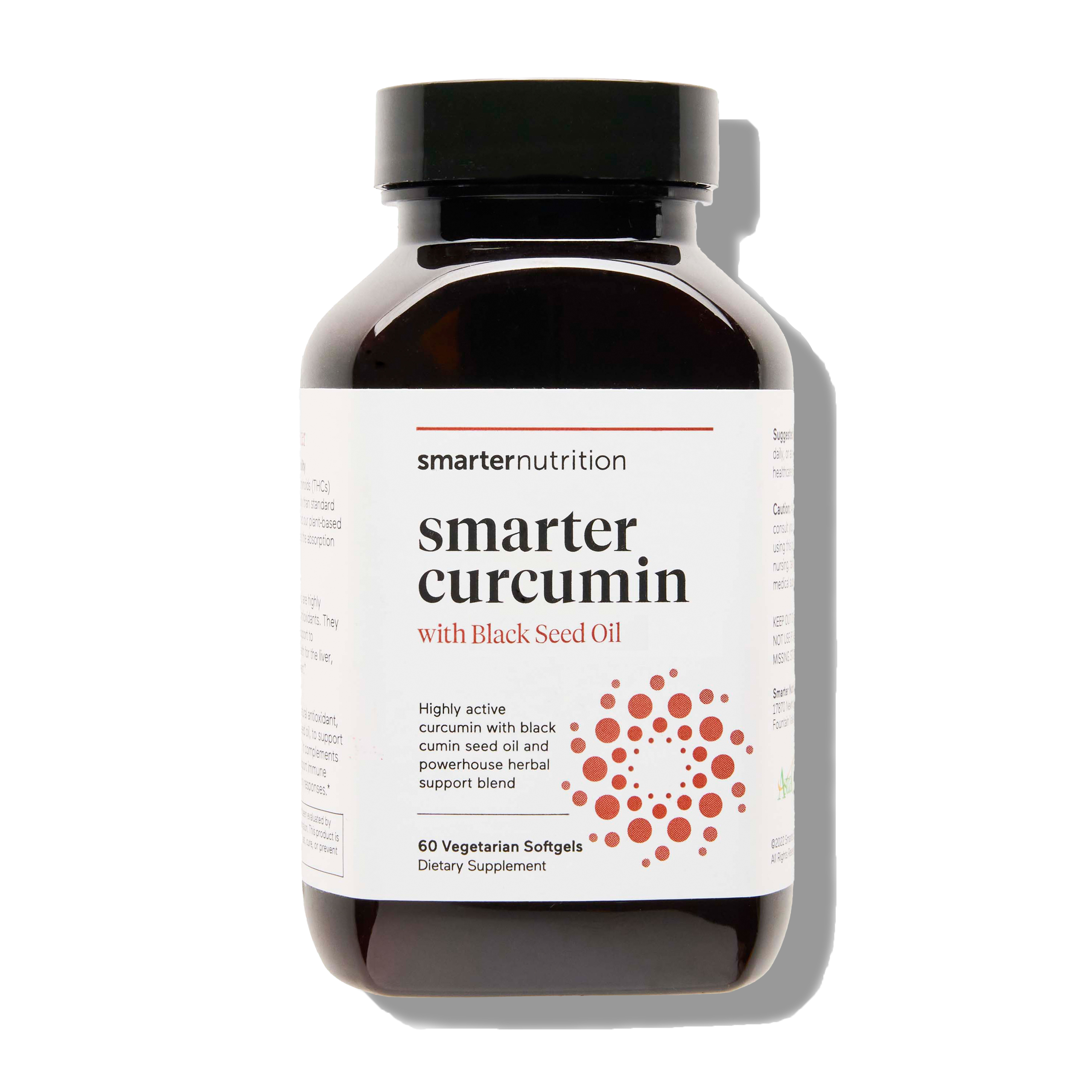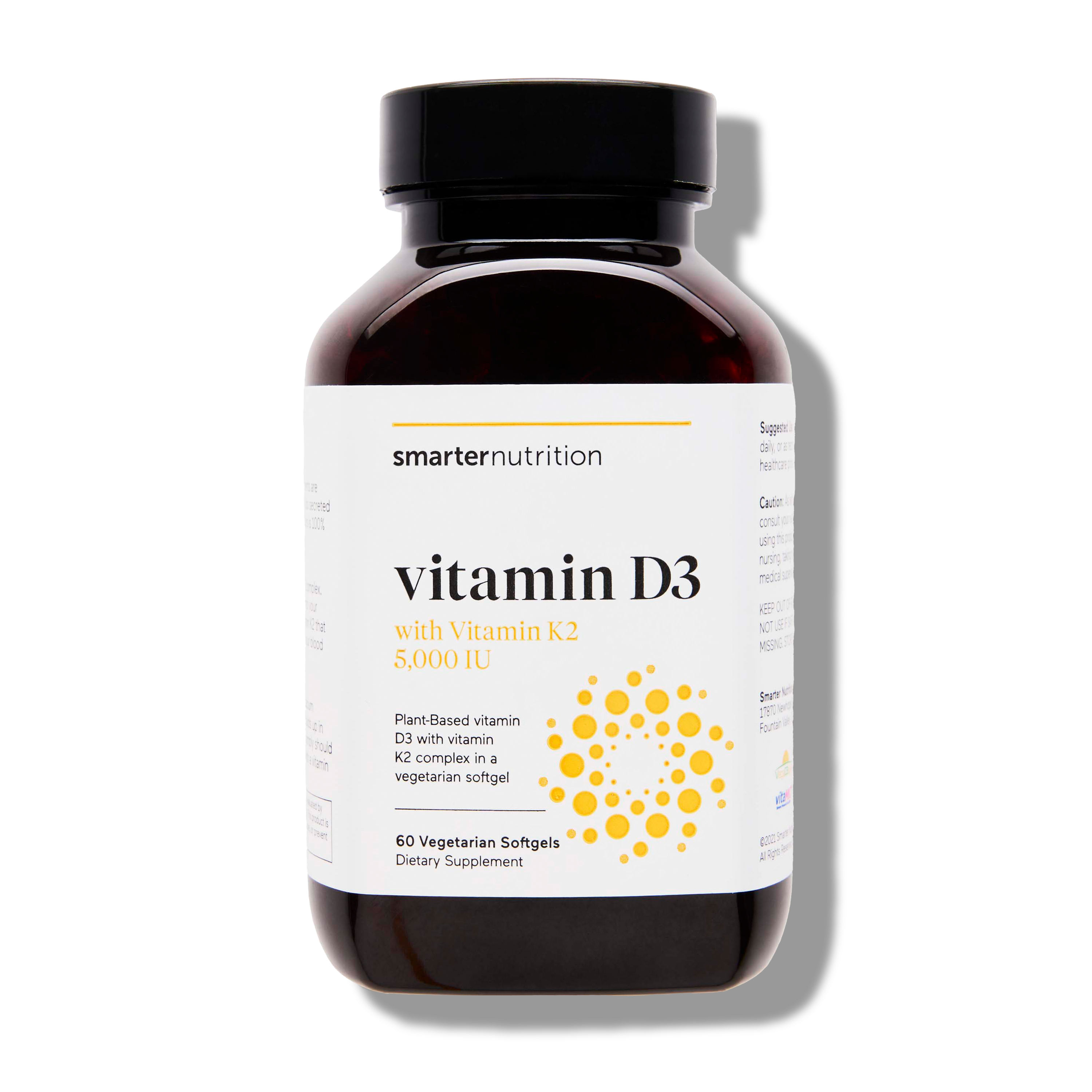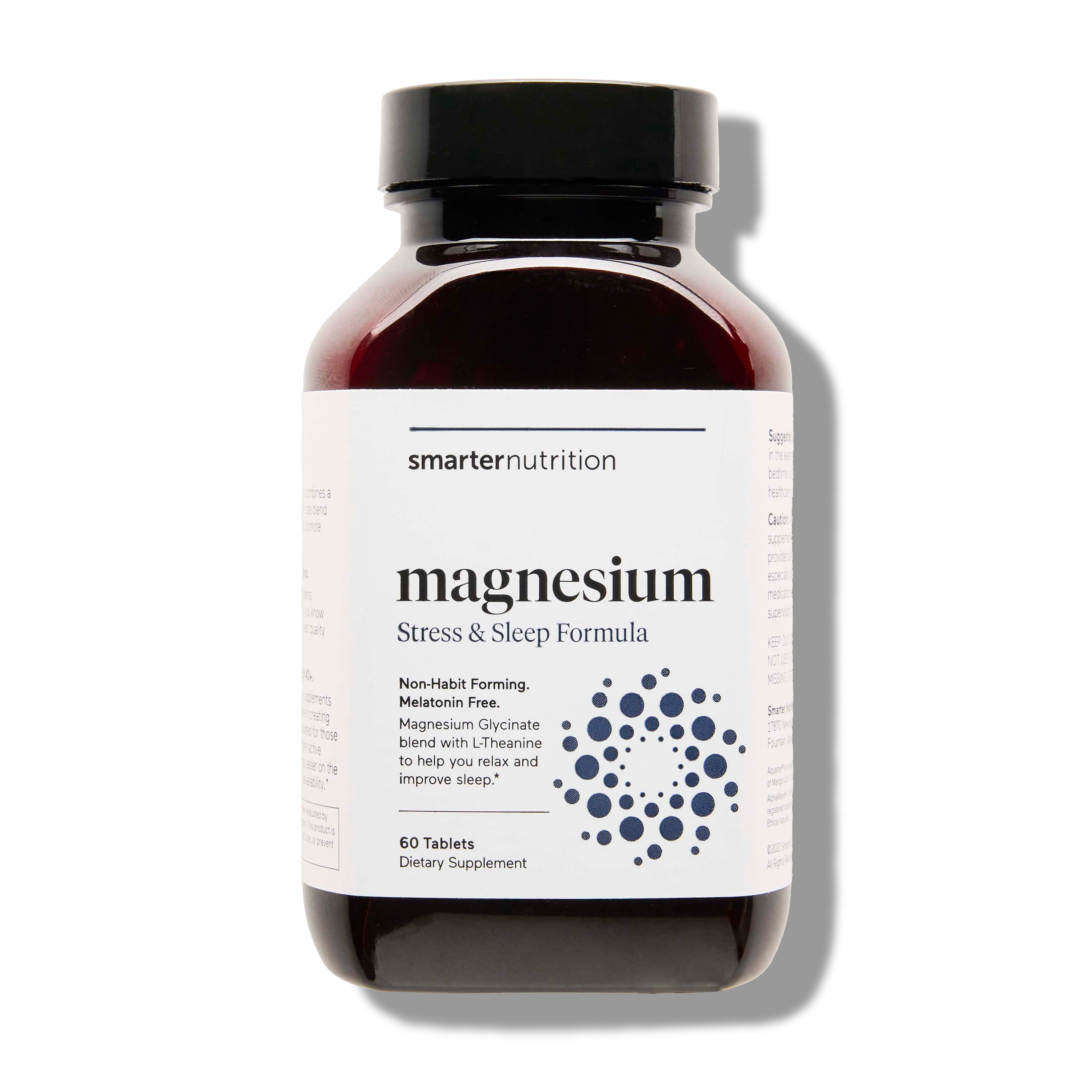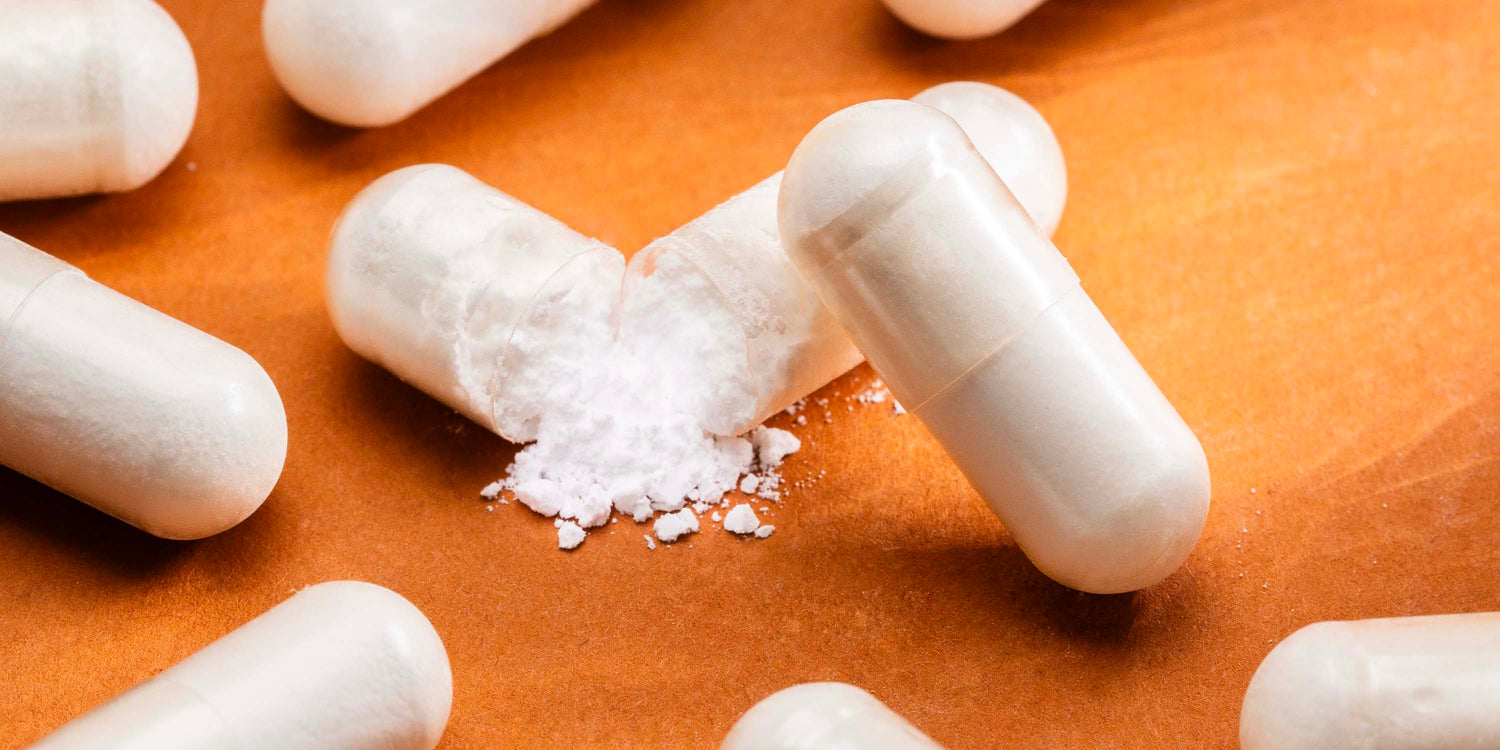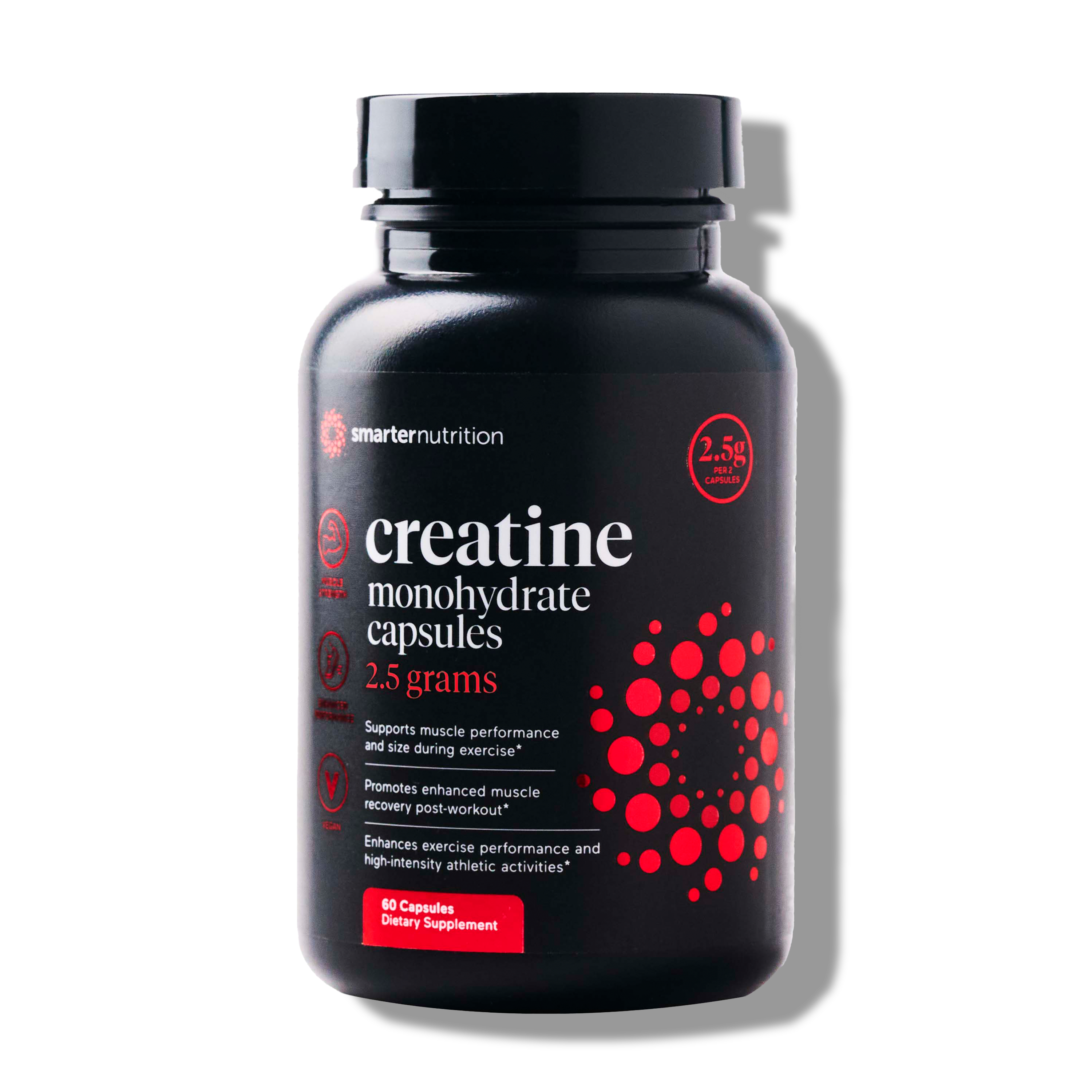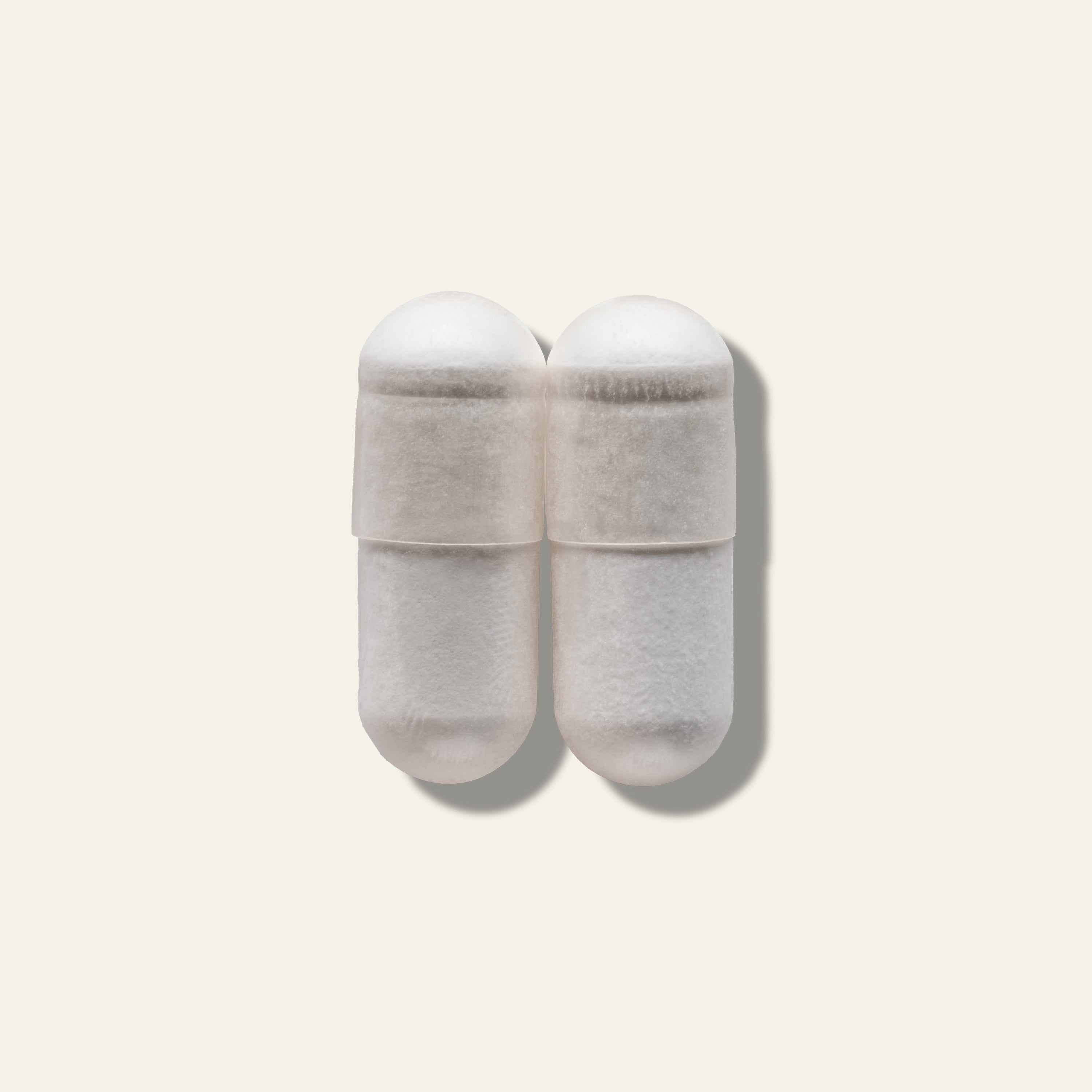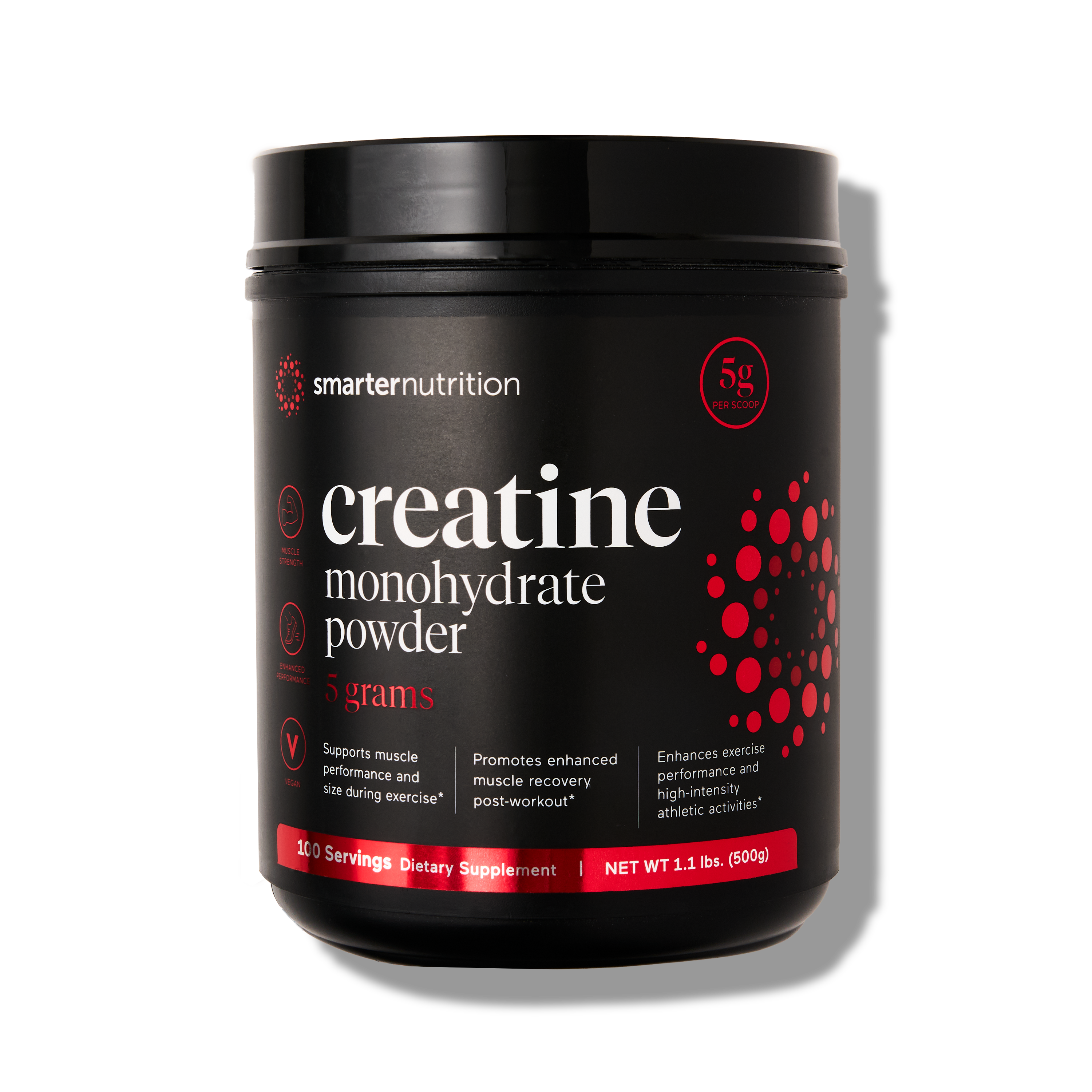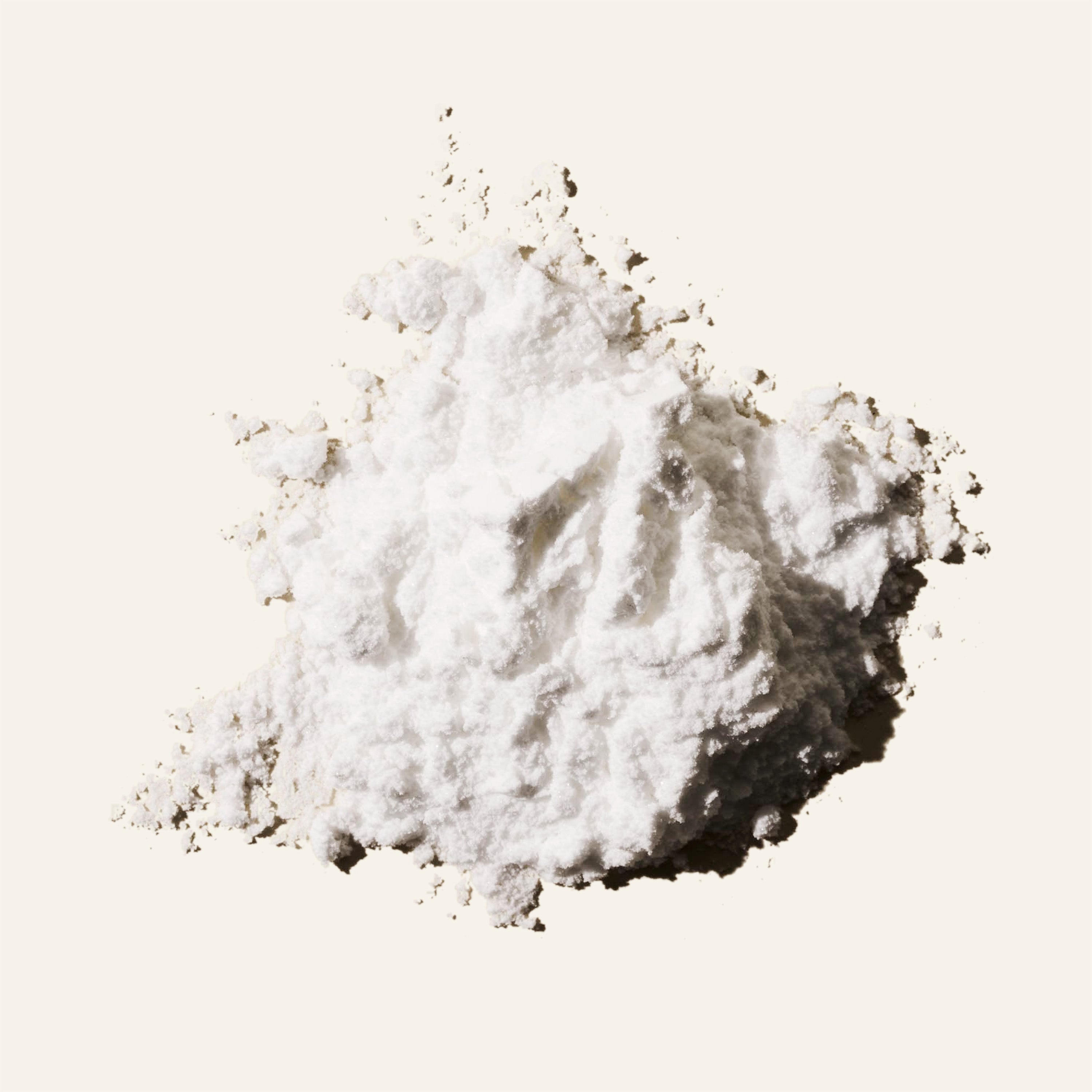When is the Best Time to Take Creatine?
Breaking Down the Best Time to Take Creatine for the Best Results
Creatine monohydrate is one of the most popular sports supplements. It’s also one of the most well-studied supplements for athletic performance and strength training. The most common question that comes up regarding creatine supplementation is: When is the best time to take creatine?
What is Creatine?
You’ve probably heard the word thrown around at the gym or on podcasts. Everyone is talking about it — but what is creatine?
Creatine is an amino acid that is stored as phosphocreatine in your muscles. This amino acid is crucial for the production of ATP. ATP or adenosine triphosphate is a molecule that muscles use as energy for any vigorous exercise. During exercise, ATP transforms into ADP, an energy byproduct that you can’t use.
If your muscles are saturated with phosphocreatine, phosphocreatine can donate its phosphate group to ADP, recycling it back into usable ATP.
Bottom line: The more phosphocreatine is in your muscles, the faster this ATP process occurs. When your muscles have ATP, they can use it to power through a workout.
Why Creatine Supplementation Helps
Since half of your muscles’ creatine comes from a diet of meat, fish, and eggs, taking a dietary creatine supplement may help saturate your muscles with creatine. A pound of raw beef and salmon provides only about 1–2 g of creatine [1]. It takes around one to two weeks of regular supplementation to see creatine’s effects on your endurance and strength.
Plus, ATP isn’t only used for exercise! It’s used for daily activities like picking up groceries and running to catch the bus. By the time you hit the gym, your muscles might be running low on their ATP and phosphocreatine levels.
That’s where creatine supplementation comes in: your body will have enough phosphocreatine to power through a workout after a long day or vice versa.
The Best Time to Take Creatine
So, what is the best time to take creatine? When it comes to the timing of creatine supplementation, opinions vary widely among experts and enthusiasts alike. Some believe in taking creatine before workouts to capitalize on its immediate availability during exercise, while others tout the benefits of post-workout supplementation for enhanced recovery and muscle repair.
Take Creatine When Most Convenient
So, which approach reigns supreme?
The truth is, there's no one-size-fits-all answer. The best time to take creatine ultimately depends on how consistent you can be with your supplementation. Taking a creatine monohydrate supplement daily will give you the best results, which is why timing your creatine intake comes down to personal preferences, lifestyle factors, and desired outcomes.
For those who prioritize convenience and consistency, incorporating creatine into their morning routine or daily meals may prove most effective.
On the other hand, those seeking to maximize performance during training sessions may opt for pre-workout or post-workout supplementation to ensure ample stores of phosphocreatine are available when needed most.
Should You Take Creatine Before or After Workouts?
If you’re looking to build as much stamina as you can by supplying your muscles with phosphocreatine, experts believe that the best time to take creatine is before or after your workout sessions. Taking creatine immediately before or after a workout with protein and carbohydrates positively impacted performance and lean body mass.
But which is better? A 2013 study, The effects of pre versus post-workout supplementation of creatine monohydrate on body composition and strength, showed that taking creatine after workouts yielded better results than taking creatine before. This beneficial result could be related to its role in helping with muscle fatigue right after a workout. After all, creatine supplementation should help promote intramuscular phosphocreatine, skeletal muscle mass, lean body mass, and strength.
However, this difference in supplement timing is minor in the grand scheme of things. You’ll see benefits from regularly taking creatine monohydrate around the time of your workouts.
How to Take Creatine for the Best Results
Regardless of the timing chosen, the key to reaping the full benefits of creatine lies in strategic dosage and consistent supplementation.
Research suggests that it typically takes one to two weeks of regular creatine intake to saturate muscle stores and realize its performance-enhancing effects.
Implement a Creatine Loading Phase
When you’re just starting off with creatine supplementation, it’s best to start with a loading phase. A loading phase is when you take higher doses (typically 20 grams of creatine per day divided into four servings) to saturate your muscles with phosphocreatine.
The loading phase can last for five to seven days before you go down to a maintenance dose of 3-5 grams a day. In fact, this brief loading phase can increase your muscles’ total creatine levels by about 20 percent [2].
Maintenance is Key
After the loading phase, it’s very important to continue your creatine supplementation daily. Taking 3-5 grams of Creatine Monohydrate a day will keep your muscles’ phosphocreatine levels at a high enough level for anaerobic exercise and training.
You can also maintain your creatine levels with our Creatine Capsules which offer 2.5 grams of creatine a day, especially if you already consume meats, dairy, and eggs.
Take Creatine with Food
Pairing creatine supplementation with carbohydrates or protein-rich meals can enhance its absorption and uptake by muscles, further amplifying its benefits.
Carbohydrates, in particular, were found to increase the absorption of creatine by the muscle cells, increasing phosphocreatine levels more than isolated creatine supplementation [3]. Mixing Smarter Creatine Monohydrate Powder into a carb-rich fruit smoothie can be an effective way to fuel up before or after your workout session.
Protein is another valuable nutrient for your body, especially when it comes to muscle restoration after your workouts. While pairing protein with creatine may not have any additional benefits, protein is useful for overall muscle mass and strength [4].
Drink Water with Creatine
It’s important to make sure you’re drinking enough water with any creatine supplementation. Taking creatine can cause water retention and bloating, and the best way to mitigate this reaction is to drink plenty of water. This helps balance the water retention you might experience with taking creatine.
Creatine may cause an initial bloat, but it isn’t directly responsible for dehydrating you. What does dehydrate you is the rigorous exercise that often comes with regular creatine supplementation. In fact, the myth that creatine causes dehydration has been debunked [5].
Nonetheless, make sure to drink water with your creatine supplement, plus what you normally drink. Men are recommended to drink 15.5 cups or 3.7 liters of fluids a day while women are recommended to drink 11.5 cups or 2.7 liters a day, per Mayo Clinic.
Creatine on Rest Days
While the focus is often on optimizing creatine intake around workouts, taking creatine on your days away from the gym can also be beneficial.
Timing your creatine supplementation on rest days isn’t as important as it is for your workout days. However, these are the times when your muscles undergo repair and adaptation processes.
Thus, creatine supplementation can play a crucial role in supporting recovery and mitigating muscle damage and soreness [6].
Take Creatine on Off Days, Especially for Loading Phase
By maintaining elevated creatine levels during periods of rest, you can expedite the replenishment of ATP stores, mitigate exercise-induced muscle soreness, and lay the foundation for future performance gains.
During the loading phase, it’s important to try to get 20 grams of creatine monohydrate in a day, even when you’re not working out. So don’t pause your loading phase on a rest day. Make sure to use your rest days to hydrate, rest, and eat balanced meals full of protein and carbs.
The Best Time To Take Creatine
The best time to take creatine is the best time for you.
Timing your creatine supplementation depends on your unique fitness goals, diet, and lifestyle. Whether it's before or after workouts, or part of your morning routine, the key lies in consistency and following the daily recommended dose.
Smarter Nutrition offers two creatine monohydrate supplements with premium creatine monohydrate. Both products are vegan so you can enjoy the benefits of this amino acid without consuming animal products.
Shop Smarter Creatine Capsules for a quick and convenient way to take creatine on the go.
Shop Smarter Creatine Monohydrate Powder for 5 grams or 5,000mg of creatine monohydrate!
References:
1. Balsom PD, Söderlund K, Ekblom B. Creatine in humans with special reference to creatine supplementation. Sports Med. 1994;18(4):268-280. doi:10.2165/00007256-199418040-000052. Hultman E, Söderlund K, Timmons JA, Cederblad G, Greenhaff PL. Muscle creatine loading in men. J Appl Physiol (1985). 1996;81(1):232-237. doi:10.1152/jappl.1996.81.1.232
3. Green AL, Simpson EJ, Littlewood JJ, Macdonald IA, Greenhaff PL. Carbohydrate ingestion augments creatine retention during creatine feeding in humans. Acta Physiol Scand. 1996;158(2):195-202. doi:10.1046/j.1365-201X.1996.528300000.x
4. Bemben MG, Witten MS, Carter JM, Eliot KA, Knehans AW, Bemben DA. The effects of supplementation with creatine and protein on muscle strength following a traditional resistance training program in middle-aged and older men. J Nutr Health Aging. 2010;14(2):155-159. doi:10.1007/s12603-009-0124-8
5. Wax B, Kerksick CM, Jagim AR, Mayo JJ, Lyons BC, Kreider RB. Creatine for Exercise and Sports Performance, with Recovery Considerations for Healthy Populations. Nutrients. 2021 Jun 2;13(6):1915. doi: 10.3390/nu13061915. PMID: 34199588; PMCID: PMC8228369.
6. Dalbo, Vincent & Roberts, M & Stout, Jeffrey & Kerksick, Chad. (2008). Putting to rest the myth of creatine supplementation leading to muscle cramps and dehydration. British journal of sports medicine. 42. 567-73. 10.1136/bjsm.2007.042473.
